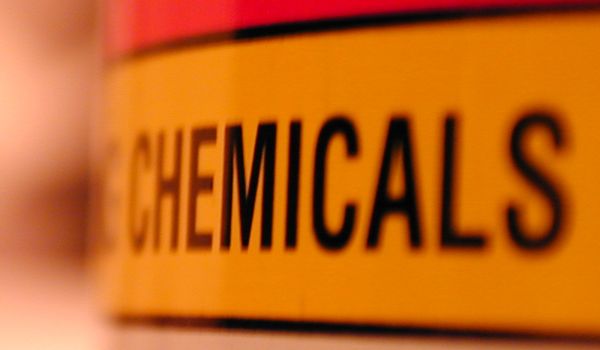Scientists Urge Broader Expertise in Chemical Safety Evaluations

When evaluating the safety of chemicals the public is exposed to, federal regulators should tap the expertise of geneticists, developmental and reproductive biologists and endocrinologists, according to a new letter from eight scientific societies representing 40,000 researchers.
If a wide range of experts weighs in on the safety of these chemicals — not only toxicologists — regulators could better understand their impact on health, said lead author Patricia Hunt, a molecular biosciences professor at Washington State University.
The chemicals of most concern are the endocrine disruptors, which mimic the actions of hormones and can disrupt our normal bodily processes, Hunt said. Some animal studies have shown they can cause birth defects.
Many of these chemicals are used in industrial processes, but not in the final products consumers may come into contact with, so public exposure is not a concern. But some do go into packaging for food and other products that are common in our society, Hunt said.
And when it comes to endocrine-disrupting chemicals, Hunt said, toxicology reports may be misleading. They may assume that "the dose makes the poison" — that is, if a little is bad, more is worse, Hunt said.
But "endocrine-disrupting chemicals don't always behave like that," Hunt told MyHealthNewsDaily. "Sometimes you see effects at low doses, then they disappear, then you have a different effect at a high dose. They defy the traditional way of looking at toxins."
That's why having endocrinologists and developmental biologists evaluate academic studies, in addition to toxicology reports, would be beneficial in judging the safety of these chemicals, she said.
Sign up for the Live Science daily newsletter now
Get the world’s most fascinating discoveries delivered straight to your inbox.
The letter was published yesterday (March 3) in the journal Science.
Aims to help agencies
Federal regulatory agencies, such as the Food and Drug Administration and the Environmental Protection Agency, create panels to review chemicals before they are mass-produced, said co-author Joann Boughman, executive vice president of the American Society of Human Genetics.
FDA panels review chemicals' metabolic effects in humans, and the EPA reviews the chemicals' effects on the environment. But it's difficult for these panels to examine health hazards that could come from long-term, chronic exposure to these chemicals, Boughman said.
"We are getting more and more concerned about [federal agencies'] breadth of expertise and speed, and that's just going to be more of a challenge in these tight budget times," Boughman told MyHealthNewsDaily.
The intent of the letter is not to criticize the federal regulatory agencies, whose goals are noble, said co-author Kelly Mayo, a biochemistry professor at Northwestern University and president of the Endocrine Society. The hope is that they will take advantage of the services of experts who can help analyze health risks that come with chemical exposure, he said.
"These agencies are set up in a particular mode for analyzing the safety of drugs, but these are tricky compounds that will require a different way of looking at them," Mayo told MyHealthNewsDaily.
Animal effects and human effects
The field of endocrinology is still young, having emerged only in the mid-1990s. But its research has shown that some chemicals have negative effects on wildlife populations, and can also harm lab animals, Mayo said.
It's less clear the extent to which the chemicals can harm, say, a mother and her fetus, he said.
"Until we know with any certainty that a particular compound won't negatively affect human health, it would be prudent to take a cautious approach and assume they have that potential to harm us," Mayo said.
One of the more well-known endocrine-disrupting chemicals, the plastics hardener bisphenol A (BPA), has been linked to reproductive problems, heart disease and diabetes. Last year, Washington became the fifth state to outlaw BPA in water bottles and children's drinking cups.
Pass it on: Scientists are asking the FDA and EPA to include the perspectives of more experts when analyzing the health hazards of mass-produced chemicals.
Follow MyHealthNewsDaily staff writer Amanda Chan on Twitter @AmandaLChan.
This story was provided by MyHealthNewsDaily, a sister site to LiveScience.












